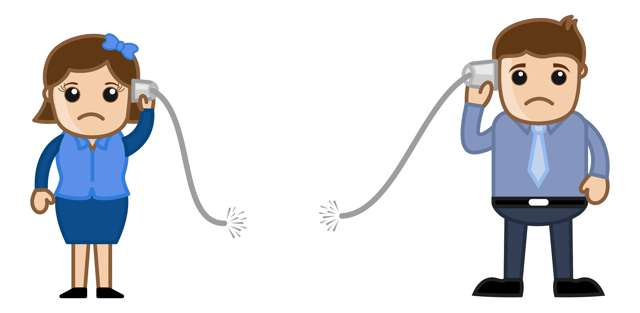
The quality and reliability of telephone calls placed over the Internet (voice over Internet protocol – or VoIP – calls) keep getting better, and often callers cannot tell the difference between calls placed over an IP network and a traditional phone line. That said, VOIP calls do sometimes get dropped and here we examine a few of the causes and tips for troubleshooting them.
Failed connection acknowledgement signal: SIP is a signaling protocol that, among other things, sends signals for initiating and ending calls. When a called party answers the phone, a connection message is sent from the called party to the initiating party. The call initiator (actually, the initiating IP PBX or VoIP gateway) then acknowledges the connection via a connection acknowledgement (known as SIP ACK) message back to the call recipient. If it takes too long for the SIP ACK message to arrive, the call could get timed out.
Clues that SIP ACK may be an issue:
- Does the call consistently fail shortly (between 10-30 seconds) after it was answered, and is this interval between call connection and call dropping always exactly the same?
- Does the call only drop when certain destinations are dialed or if certain call routes are selected?
Faulty SIP session timers: SIP session timers (SST) allow the phone system to detect calls that have been cut off even if call termination signaling has not been exchanged. For example, there could be a power outage on one end that terminates the call without sending the “BYE” disconnect signal to the other end. To verify that the call is still active, IP servers or gateways send “keep-alive” messages at regular intervals. These intervals are programmed into the system and can be short, like every 30 seconds, or longer, like every 10 minutes, depending on user preference. If the keep-alive messages arrive late or not at all, the server could assume the call has been dropped and end the call.
Clues that SST may be an issue:
- Is the time interval between the call initiation and the cut-off always exactly the same?
- Did the call connection last more than a minute before dropping? This helps distinguish it from the SIP ACK issue, which happens within the first minute.
- Do the calls drop independently of whether there is noise or talking on the line?
Media inactivity timers: When a call is placed on mute or on hold, or for whatever reason there is no audible activity on the line, the flow of RTP media packets from that endpoint stops, since there is no information to transmit. The media activity timer can end the call by releasing the channel after a specified period of not receiving any RTP packets. This is another way SIP ensures that orphan calls are not kept active.
Clues that the media inactivity timer may be an issue:
- Does the call always drop after a party has been silent for a period of time, or after the user has activated the mute button?
- Does the issue seem to be brand-specific (i.e., manifesting with certain brands of handsets or headsets but not others)?
Talk-off: Talk-off refers to the misinterpretation of voice as a DTMF signal (dual tone multiple frequencies: the beeping sounds made by telephone dialing buttons). Normally, this results in the parties hearing beep tones during a call, as if someone is pressing buttons on their telephone key pad while they’re talking. In certain cases, if the IP PBX interprets the tone as an “end call” or “hold” command, it could terminate the call.
Clues that talk-off may be an issue:
- Does the call drop at seemingly random times (i.e., not always at the exact same time like some other dropped call issues)?
- Do the parties hear DTMF tones during dialogue?
- Do the calls drop while someone is speaking?
Network disruption: Not all dropped SIP calls are VoIP related. Sometimes they drop because of a problem with the network connection: the Wi-Fi signal is lost or a cable is loose, for example. Don’t rule out checking network connections as part of the troubleshooting process.
CONCLUSION
There are many variables to each type of problem and this is not an exhaustive list, so it is not feasible to get into the possible solutions to each issue here. The main idea is to help you zero in on possible causes and, most importantly, to ask affected users the type of questions that will help you narrow down the possibilities. If you need any help solving a technical issue with VoIP call quality, feel free to reach out to our support team at TeleDynamics.










Comments